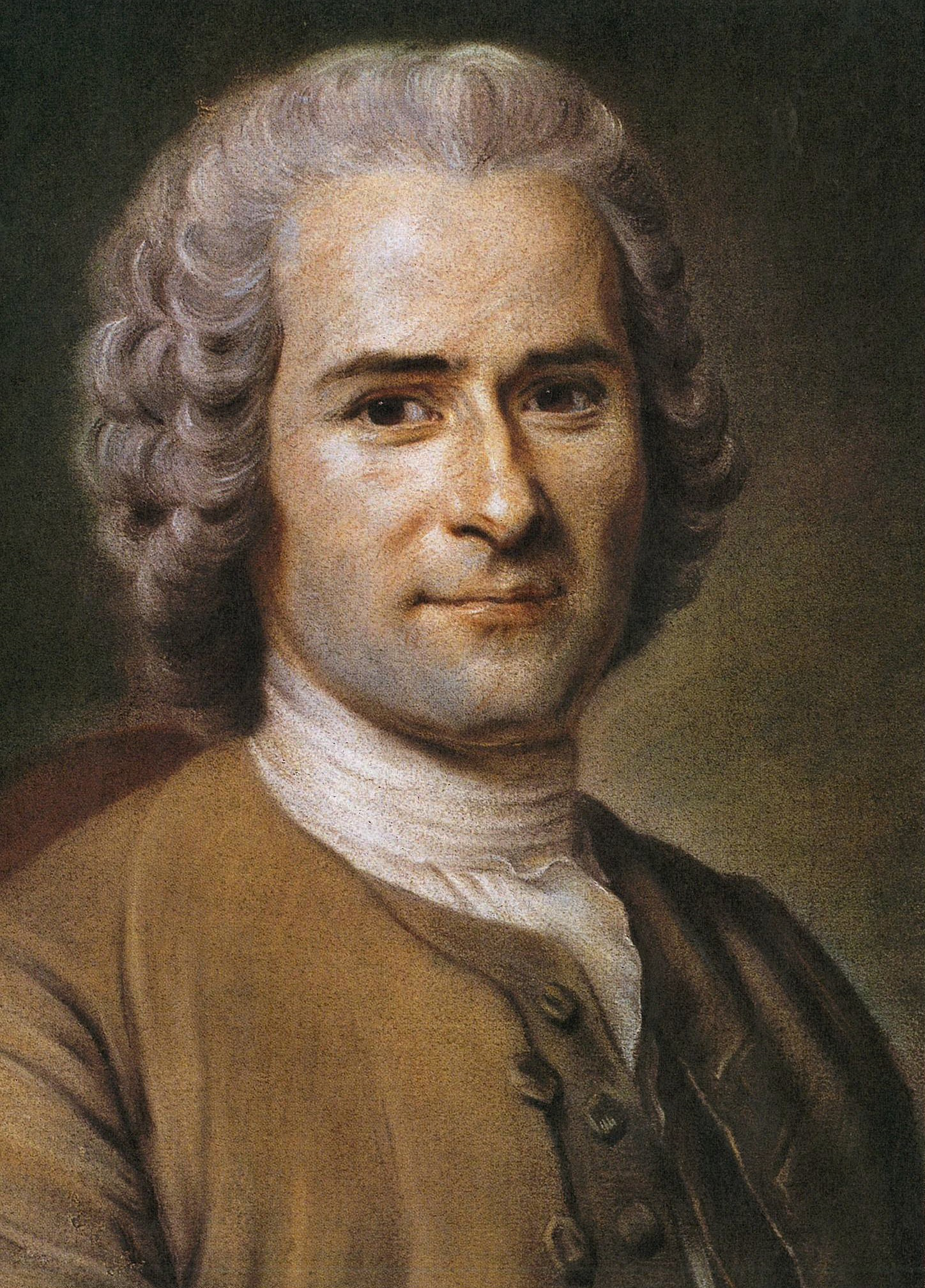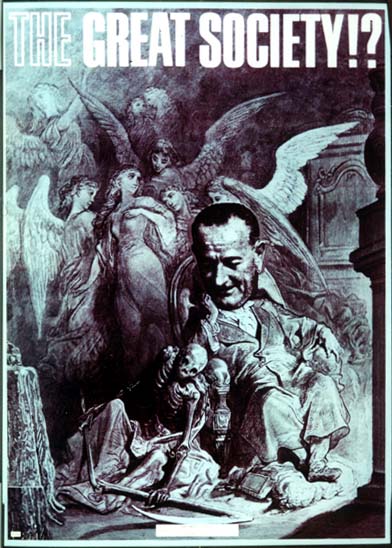Le Monde,
France
The American Left Rediscovers 'the Public Good'
By Daniel Vernet 
Translated By Kate Brumback
May 10, 2006
France - Le Monde - Original
Article (French) 
 Jean-Jacques Rousseau, 1712-1778: the Inspiration
Jean-Jacques Rousseau, 1712-1778: the Inspiration
for America's 'New Left?' Rousseau's Ideas Influenced
the French Revolution, the Development of Socialist
Theory, and the Growth of Nationalism. He is Known for the
Quote, 'Man is Born Free, and Everywhere he is in Chains.'
[
 Jean-Jacques Rousseau
Jean-Jacques Rousseau]
------------------------------------------------------------------
Faced
with a president whose popularity is in a free fall, the left is likely to make
gains in the coming elections, although it lacks either a program or a
candidate. This report could in reference to France. It is American. But the
debate that is now beginning on the other side of the Atlantic in the
Democratic and "liberal" milieus - in Europe we would say "progressives"
- could be a lesson for the French left.
For the
moment, this debate hasn't gone beyond the realm of intellectuals and
researchers, but the politicians will follow. The Democratic Party needs a "factor that will help unite them … if their goal isn't merely
to win elections, but to govern decisively after winning them," writes
Michael Tomasky in the May edition of The American Prospect [ ]. This unifying ingredient should be a "big idea" that
transcends the two political platforms of the American left since the 1960s: defending
diversity and civil rights, whether they are individual or collective rights.
]. This unifying ingredient should be a "big idea" that
transcends the two political platforms of the American left since the 1960s: defending
diversity and civil rights, whether they are individual or collective rights.
His article follows a series published in the same magazine by
John Halpin and Ruy Teixeira [ ], two researchers at the Center for American Progress, a think tank close to
the Democrats and liberals. In 2000, Halpin worked
for the presidential campaign of Al Gore and Joe Lieberman.
], two researchers at the Center for American Progress, a think tank close to
the Democrats and liberals. In 2000, Halpin worked
for the presidential campaign of Al Gore and Joe Lieberman.
Halpin and Teixeira,
after conducting several dozen opinion polls, have concluded that despite
current difficulties, the Republican Party is far ahead of the Democrats when
Americans are asked about the presence of a political vision. The left lacks an
identity, a unifying objective that prompts people to mobilize. The left could
never figure out how to use its unifying theme against "compassionate
conservatism." And then it was the issue of national security that was advanced
by Bush after the September 11, 2001 attacks.
For these
authors, the "big idea" is that the Democrats and progressives must fight
tooth and nail against the individualism of the right and the left. This is the
"public good" that was so dear to Jean-Jacques Rousseau [ ], "civic republicanism" and "citizenship." This
orientation would return to the tradition of American liberalism as expressed by
the New Deal of Franklin Roosevelt and Harry Truman and the policy of John
Kennedy - "ask not what your country can do for you. Ask what you can do
for your country," uttered by the young president in his inaugural address
- or to the "Great Society" of Lyndon Johnson, before it was buried
under the debris of the Vietnam War and the excesses of the New Left.
], "civic republicanism" and "citizenship." This
orientation would return to the tradition of American liberalism as expressed by
the New Deal of Franklin Roosevelt and Harry Truman and the policy of John
Kennedy - "ask not what your country can do for you. Ask what you can do
for your country," uttered by the young president in his inaugural address
- or to the "Great Society" of Lyndon Johnson, before it was buried
under the debris of the Vietnam War and the excesses of the New Left.
 Lyndon Johnson's Great Society Program: Can the Ideals
Lyndon Johnson's Great Society Program: Can the Ideals
That Isnpired it Be Revived By the American Left?
[
 The Great Society
The Great Society]
------------------------------------------------------------
The negative effects of the "great society"
and of a strategy centering on the defense of minority rights - blacks, women,
homosexuals, etc. - have already been denounced by former Democrats that contributed
to defining this policy. Having swelled the neoconservative ranks, these
disappointed Democrats consider it regrettable that their party sacrificed the public
good on the altar of special interests and narrow demands. With a program that amounts
to no more than a combination of fragmented plans, the left lost its ability to
speak to the nation as a whole or to address itself to groups, ratifying the
atomization of society.
Bill
Clinton tried to break with this divisive approach by stressing the responsibility
of citizens just as much as citizen rights. One of his advisers, a "Straussian of the left," William Galston,
was, for example, in favor of reinstating compulsory military service, in order
to give young people a greater sense of the common good. Clinton never went
through with the plan, but the "New Liberals" are looking for a
Democratic presidential candidate capable of proposing a grand design plan for
all Americans.
[Editor's
Note: The phrase "Straussian of the left," refers
to the "Godfather of the Neo-Cons," Leo Strauss.  ]
]
French Version Below
La
gauche américaine redécouvre le "bien commun"
par Daniel Vernet
09.05.06
Face à un président dont la popularité est en chute libre, la gauche a
des chances de remporter les prochaines élections, bien qu'elle soit en manque de programme et de candidat. Le constat pourrait être français. Il est américain. Mais le débat qui commence outre-Atlantique dans les milieux démocrates et "libéraux" - en
Europe on dirait "progressistes"
- est riche d'enseignements pour la gauche française.
Il ne dépasse pas pour l'instant le milieu des intellectuels et des chercheurs. Les hommes politiques suivront. Le Parti démocrate a besoin d'un "ingrédient unificateur (...) si son but n'est pas seulement de gagner les élections, mais de gouverner après les avoir gagnées", écrit Michael Tomasky dans le numéro de mai du magazine The American Prospect. Cet ingrédient unificateur devrait être une "grande idée" qui transcende les deux postulats politiques de la gauche américaine depuis les années 1960 : la défense de la diversité et la défense des droits, que ce soient les droits individuels ou les droits collectifs.
Son
article fait suite à une série publiée dans le même magazine par John Halpin et Ruy Teixeira, deux chercheurs du Center for American Progress, un think tank proche des démocrates et des libéraux. John Halpin a travaillé en 2000 pour la campagne présidentielle d'Al Gore et Joe Lieberman. MM. Halpin et Teixeira ont épluché des dizaines d'enquêtes d'opinion. Ils en concluent que, malgré ses difficultés actuelles, le Parti républicain devance largement les démocrates quand les Américains sont interrogés sur l'existence d'une vision politique. La gauche manque d'une identité, d'un objectif rassembleur qui invite à la mobilisation. Elle n'a pas su opposer de thème unificateur au "conservatisme de la compassion" puis au nationalisme sécuritaire mis en avant par George W. Bush après les attentats du 11 septembre 2001.
Pour ces auteurs, la "grande idée" que les démocrates et les progressistes devraient porter haut et fort contre l'individualisme de droite comme de gauche, c'est le "bien commun" cher à Jean-Jacques Rousseau, le "républicanisme civique", la "citoyenneté". Cette orientation renouerait avec
la tradition du libéralisme américain telle qu'elle s'est exprimée dans le New Deal de Franklin Roosevelt et Harry
Truman, dans la politique de John Kennedy - "Ne vous demandez pas ce que l'Amérique peut faire pour vous, demandez-vous ce que vous pouvez faire pour l'Amérique", avait déclaré le jeune président dans son discours inaugural - ou dans la "grande société" de Lyndon
Johnson, avant que celle-ci ne sombre sous les décombres de la
guerre du Vietnam et les excès de la New Left.
Les effets pervers de la "grande société" et d'une stratégie essentiellement orientée vers la défense des droits des minorités - Noirs,
femmes, homosexuels, etc. - avaient déjà été dénoncés par une partie de ceux qui avaient contribué à définir cette politique. Ayant grossi les rangs des néoconservateurs, ces démocrates déçus regrettaient que leur parti sacrifie l'intérêt général sur l'autel des intérêts particuliers et des revendications catégorielles. Avec un programme qui n'était plus qu'un assemblage de mesures fragmentaires, la gauche perdait la capacité à parler à toute la nation pour s'adresser à des groupes, entérinant l'atomisation de la société.
Bill
Clinton a tenté de rompre avec cette approche parcellaire en insistant autant sur les responsabilités des citoyens que sur leurs droits. Un de ses conseillers, "straussien de gauche", William Galston, était, par exemple,
partisan de rétablir le service militaire obligatoire pour donner aux jeunes le sens du bien public. Il n'est pas allé jusqu'au bout, mais les
"nouveaux libéraux" attendent un candidat démocrate à la présidence capable de proposer un grand dessein pour tous les Américains.
Daniel Vernet
Article paru dans l'édition du 10.05.06